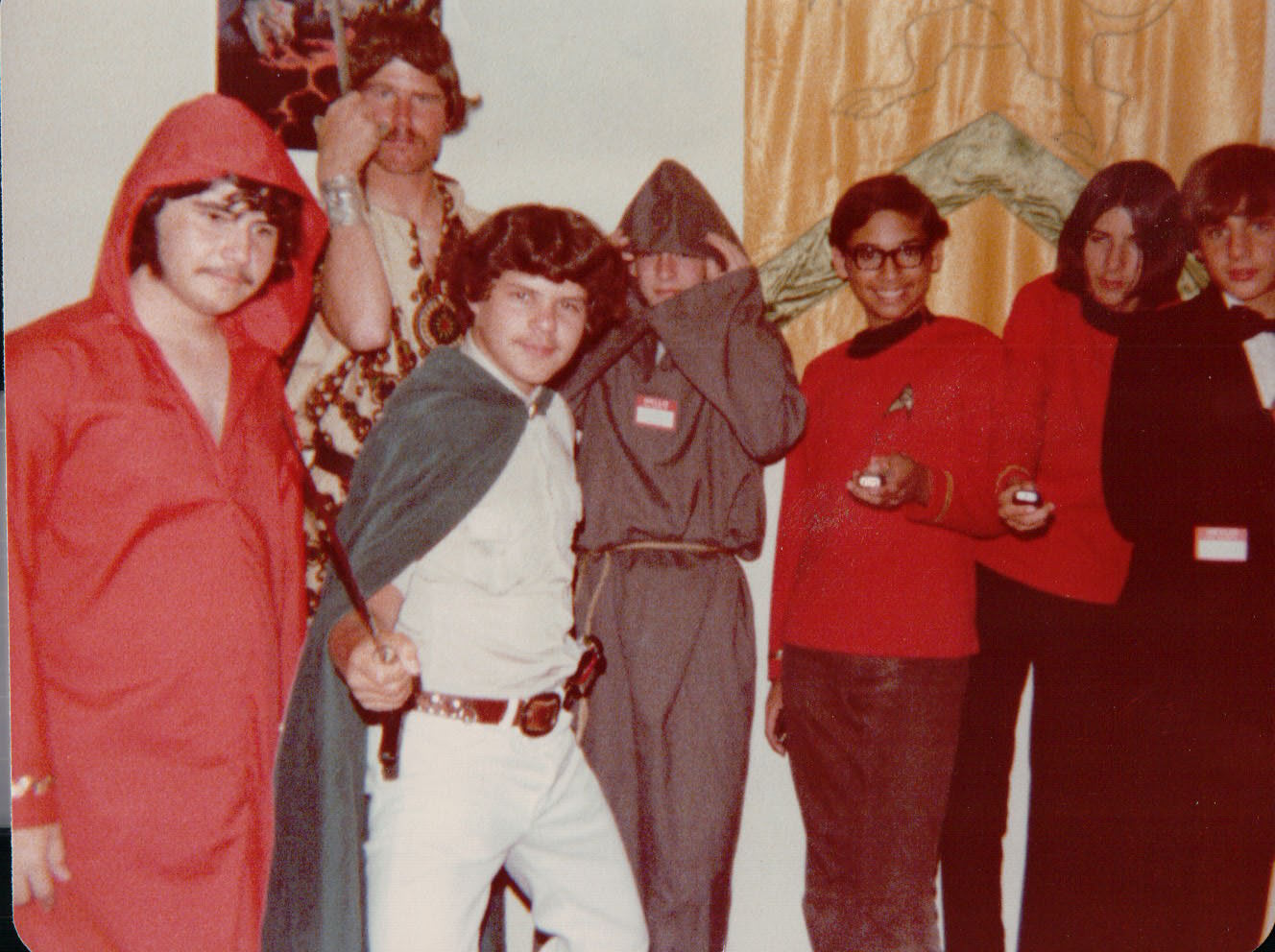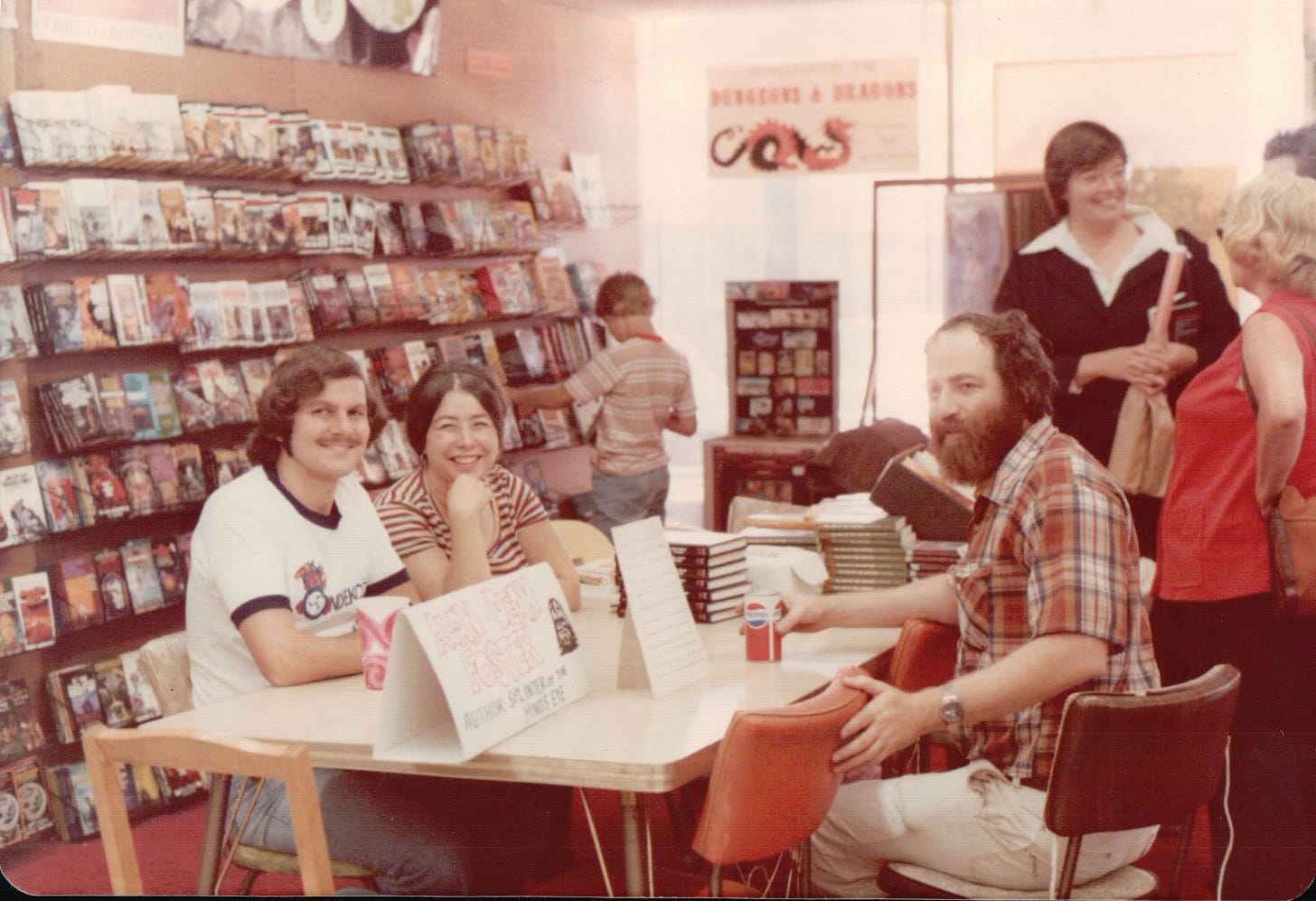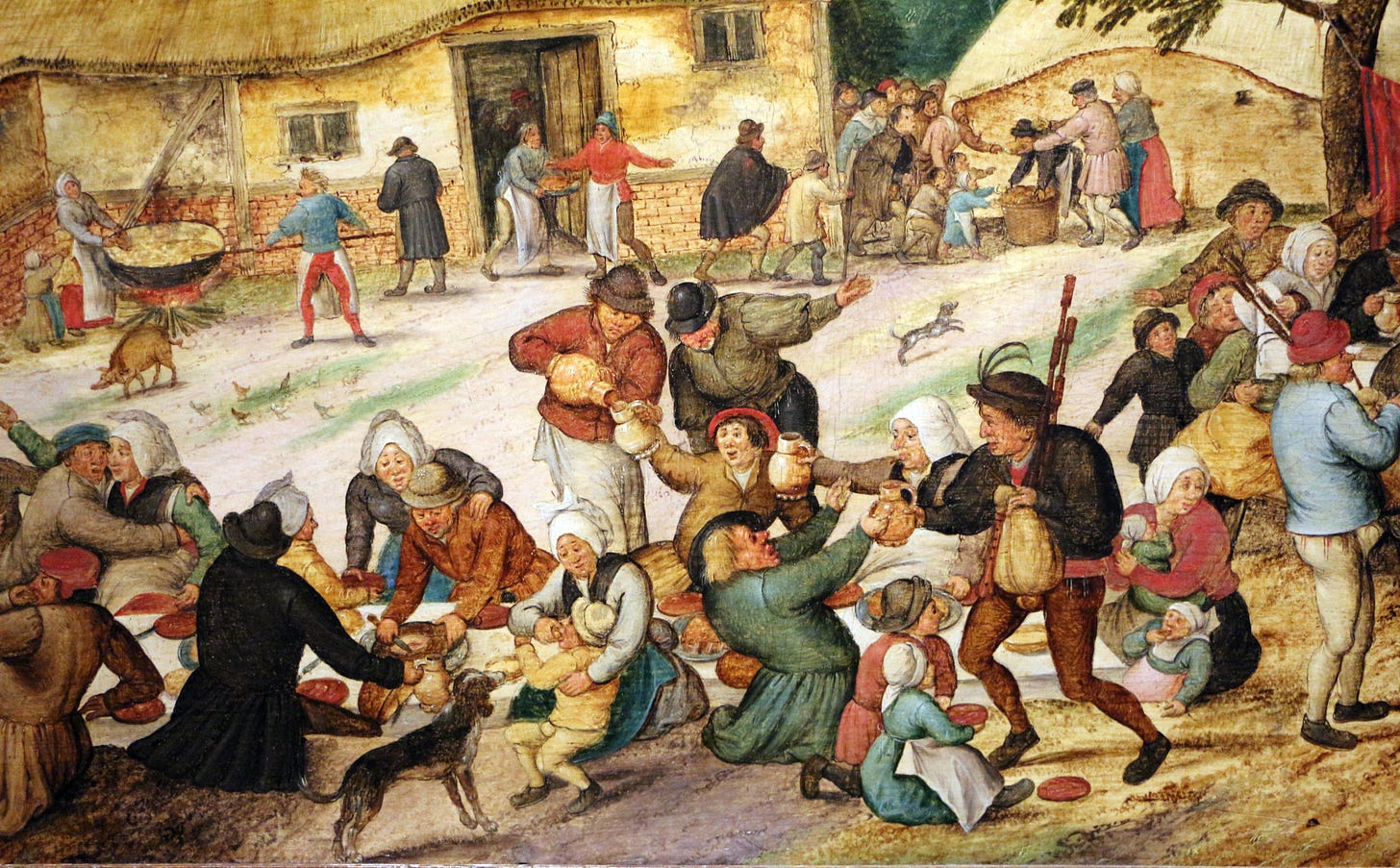Geekery as a social activity
It's no fun by yourself.
Back in the day, the misspent youth in the 70s and 80s that Steven and I often discuss on the Ancient Geeks podcast, the stereotype of “geek” was a loner. You know the caricature: somebody sitting in the basement, surrounded by books, comics, and nerdy paraphernalia like action figures, polyhedral dice, and model kits, a movie poster tacked on the wall, absorbed in a video game…The mental image that many people had of geeks like us was someone cocooned in the physical trappings of their nerdy passions, closeted away from the rest of the world.
That picture couldn’t be more inaccurate inaccurate.
Long before the Internet made it easy to find fellow travelers, geekery was a social activity. By their nature, many of the initial acts of consumption of geek culture, like reading a book, were solitary activities. But being a geek didn’t stop there.
I’ll use my own experience as a touchstone. Of course, after you read a book, you often wanted talk to a friend about it. I had several friends who were science fiction and fantasy fans, and we regularly traded recommendations (“The Amber series is mind-blowing!”), or dire warnings to stay away from bad books (“The Sword Of Shannara stinks on ice!”).
You often made new friends at stores where you bought the geekery. My family owned one of those stores, which sold books, comics, and games. There was a community of regulars whom you regularly greeted, and you always welcomed newcomers into the fold. Hanging out at our store was always a fun activity.
Special events with authors, game designers, and artists were also a highly social occasion — not just with your fellow geeks, but the creators themselves. This was an era when the people who produced the books, comics, movies, and games you enjoyed were extremely approachable. It’s still true, but to a slightly diminished level today.
Of course, the other place where you met “the creatives,” the geek friends you knew, and the ones you were going to make, were conventions. There were several regular events in Southern California, where I grew up, some specializing in books, others in comics (such as the San Diego Comic Con, the con of cons), and games. Over time, some conventions became very ecumenical, combining some or all strands of geekdom. As I said, we were sociable.
At a smaller scale, there were clubs. My comics collecting got underway when I started attending meetings of the West Coast Comics Club, where you could buy back issues from both dealers and other collectors alike. And, of course, you talked about your shared passion for comics with all of them. For the truly dedicated at these conventions, there were even the costume contests (the old term for cosplay), where you could parade both your love of geekery and your skill at costume-making.
Safari expeditions with a friend to used bookstores was also a regular activity. As a young teen, I used to go to one of these, brilliantly named The Book Man, where the eponymous owner would dump the latest week’s comic purchases on Saturdays. We’d quickly sift through the piles. He was looking for Daredevil; I was hot on the trail of back issues of Thor and Batman. Sometimes, there would be the thrill of finding something special, like the copy of the highly-esteemed and even more highly prized Green Lantern/Green Arrow #76 that was sitting in the middle of a pile of Archie and Richie Rich comics.
Later in life, I still went on the hunt to find lost treasures at used bookstores. A good friend (hello, Jennifer!) and I used to visit a used bookstore in Palo Alto together, when we wanted to take a break from work. There were all kinds of gems to unearth there, too. It would not have been as much fun alone, by far.
Letters pages in magazines and comics weren’t my bag. On the other hand, I did call into the local science fiction radio show, Hour 25, a couple of times. Once, I raved about a new game I had found, Dungeons & Dragons, a vehicle through which you and friends could invent your own fantasy stories. The hosts were less enthused, dismissing it as a silly activity. Not all curators make good calls.
Role-playing games like D&D were ultra-social activities, by design. I had a couple of gaming groups, including my high school friends, people I knew from the store, and a regular D&D club that met at Cal State Fullerton. Not only did we collaboratively concoct our adventures in a medieval fantasy world, but we often used RPGs as a vehicle for injecting references to other geek culture we loved. In different D&D sessions, we sailed past R’lyeh (wisely not stopping to pay Cthulhu a visit), and watched an Arrakian sandworm at an equally safe distance when we were crossing a desert.
These were all face to face activities of shared geekery. We didn’t need the Internet to be sociable. We were just naturally that way. We enthused about books we found, cracked in-jokes that only fans of geek culture would get, speculated how the next issue of a comic book we loved might resolve a particularly nasty cliffhanger, went to movies together, attended conventions, played RPGs and board games…Geek culture felt like one of those Bruegel paintings that show a bustling town of peasants, all having a great time together.
In the Internet age, it’s easier for geeks to connect with one another. We read and comment on posts, argue in forums, share links, scroll through pictures, and interact throughout the electronic version of the Bruegel painting. That’s wonderful, but I also love the face to face contacts, which has been the infrastructure of geek culture for decades. There would never have been a geek culture at all, if geeks were just solitary souls sitting in their basements, watching re-runs of Star Trek, bagging their comics, assembling their model kits, and sharing with no one their love of a medium of staggering imagination.





I love geek culture, it's my favourite place to be. This made me feel very nostalgic to be honest. I still go to cons and markets and I purposefully go out and look for strange/smaller events to support now as a fully sized adult! I'm glad that BG3 got the popularity it deserves, it revived a lot of those feelings for us that had to make a concerted effort to go out and have fun with likeminded gamers.
Cosign. I generally do not know of a group that is more inclusive and welcoming that the geeks I hang out with.
For instance, I have been going to a thing called D&D In A Castle. One of the DMs there self-describes as a "Gaymer" and there was a "they/them" at the last event.
I got a bit of a shock to find tampons in the mens room, and I had to go look at the sign on the door to make sure I hadn't messed up. But nobody was there to hit on me, so go for it.
I have been wondering where this ethos comes from, though.